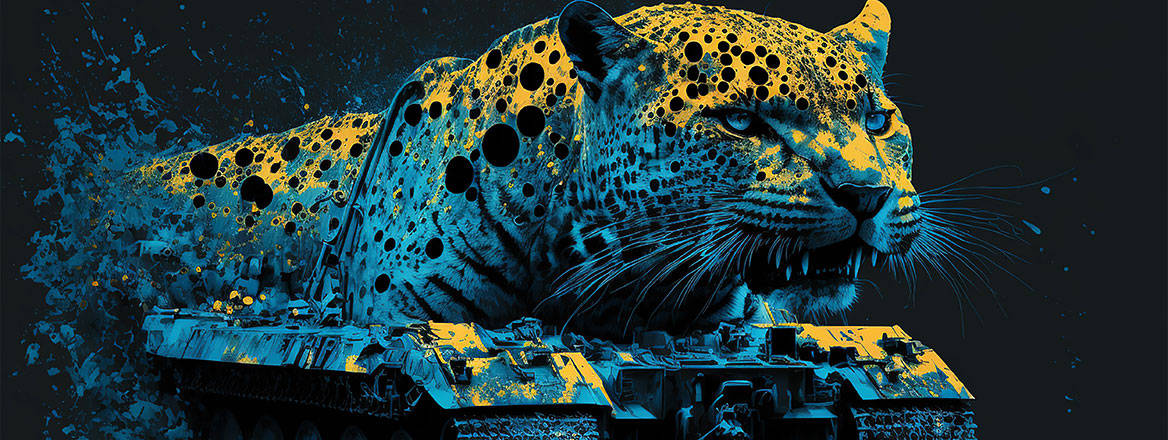As I walked around Kyiv on a beautiful, sunny morning in early September, I noticed the scaffolding in the city’s squares. Statues had been covered up to protect them from bomb damage. Later, I saw a statue with no protection around it– a graffiti-covered memorial to a Red Army general whose name nobody remembered. I was told that this statue had been covered by protective scaffolding before the war. The protection was removed when the war broke out. There was some hope that Russian bombs might solve the problem of what to do with this relic of Soviet rule.
You cannot understand the war in Ukraine without knowing its history. This was made very clear to me in a conversation I had with Olesia Briazgunova, who works for one of Ukraine’s two national trade union centers, the KVPU (Confederation of Free Trade Unions of Ukraine). I suggested that I saw some similarities between the situation in Ukraine today and the Spanish Civil War.
Olesia stopped me right there and asked if there had been genocide in Spain. I said there hadn’t been. She said, “Well there’s genocide here — and the Russians have been trying to wipe out the Ukrainian nation for a very long time.” I thought of Stalin’s terror-famine of the early 1930s, which Ukrainians call the Holodomor, and which they rightly consider an act of deliberate genocide. She had a point.
History surrounds you in Kyiv. You hear it in conversations, you see it in the street names, and you breathe it in the air. The Solidarity Center, which is the AFL-CIO’s global workers’ rights project, is located on a street once named after Stalin’s Communist International. The street was renamed in honor of Symon Petliura, a leader of the Ukrainian People’s Republic and a deeply controversial figure in the country’s history.
In addition to renaming streets with Soviet connections, the city seems to be removing much of its Russian history, too. At one point I was directed by Google Maps to Pushkin street. But Pushkin street no longer exists.
When I interviewed Georgiy Trukhanov, the leader of the 1.2 million member teachers union in Ukraine, about their relationship with the teachers union in Russia, he told me that those Russian teachers were partially guilty here. “Guilty of what?” I asked. All the Russian soldiers currently fighting in Ukraine, all of them, studied in Russian schools, he said. They were taught to be what they have become — killers and rapists.
The war has united Ukrainian society as never before. The unions are fully signed up. The FPU president, Grygorii Osovyi, told me that 20% of Ukrainian trade union members are now serving in the armed forces. Georgiy Trukhanov told me that teachers could not be drafted as they are considered essential workers — so thousands of them have volunteered.
I spoke with many union leaders about the situation in what Ukrainians call the “temporarily occupied territories.” Russian occupiers have essentially banned the Ukrainian language from classrooms. Many workers have fled those territories, and unions are doing an amazing job of helping them, collecting aid, providing accommodation, and much more. Union offices I visited were full of boxes of aid, including plastic sheeting to replace windows destroyed by Russian artillery. Mykhailo Volynets, a former miner and head of the KVPU, told me that there was an urgent need for bandages.
Amid the horrors of the war, there are occasional bits of very positive news. An LGBTQI activist explained to me how Putin had weaponized homophobia in Russia, including spreading rumors that Ukrainian president Volodymyr Zelensky and other leaders were gay. Meanwhile, in Ukraine, there has been a huge shift in public opinion regarding LGBTQI people, many of whom are serving at the front. This is a part of the world where homophobia has run rampant, and even turned violent, as we have seen in countries like Georgia. But in Ukraine, the war has helped change attitudes in a positive way.
I spoke with Ukrainian socialists, with young workers who organize couriers, with aviation workers and railway workers. I was interviewed by women members of the nuclear power workers union — who are staying at their posts at Europe’s largest nuclear power plant in Zaporizhzhya, now under Russian occupation.
The message I got from everyone could not have been clearer: The Ukrainian labor movement and Left stand fully against the Russian invasion. They want and expect solidarity from the labor movement and Left in other countries. They enormously appreciate everything from solidarity gestures such as the visits of leading trade unionists, including the American Federation of Teachers’ president Randi Weingarten, and donations from unions ranging from generators to much-needed bandages.
Despite the differences, I still see this conflict as the Spanish Civil War of our time. The many young men and women who have come to Ukraine to join the fight are inspiring in the way that the International Brigades were some 90 years ago. The Spanish Republic was defeated in large part because many democracies failed to come to its aid, while the fascists were fully backed by Nazi Germany and Fascist Italy. Will the same thing happen in Ukraine?
Putin’s regime is a fascist one, and the war on Ukraine is an illegal, imperialist war. Ukraine is not a perfect society, and its government is not a perfect government. Nor was the Spanish Republic. But in the fight against fascism, we need to ask ourselves, to paraphrase the old song, which side are we on?


